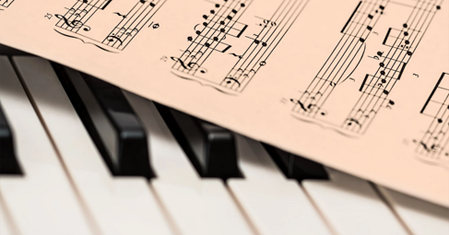Which Musical Instrument Is Easiest to Learn?
Learning  to play a musical instrument offers you a whole range of advantages. There's the satisfaction of being able to do something creative, along with the social benefits being able to play music brings. However, there are other things you can gain, from improved motor skills to confidence.
to play a musical instrument offers you a whole range of advantages. There's the satisfaction of being able to do something creative, along with the social benefits being able to play music brings. However, there are other things you can gain, from improved motor skills to confidence.
Any instrument can be learnt up to virtuoso standard, but if you don't have the time or the inclination to put in the work that will entail, you'll be looking for an instrument whose basics you can pick up relatively easily. Your choice is likely to be governed by three factors:
- What kind of music do you like? There's no point learning an instrument that isn't suitable for the genre you love.
- Do you read music (or are you willing to learn)? Some instruments are harder than others to learn without reading music.
- Do you want to play in a band? In an orchestra? Solo? Accompanying yourself on songs? You'll need an instrument suitable for this.
Generally speaking, though, here are a few of the easier instruments to learn.
Recorder
There are plenty of good reasons why the recorder is often the first instrument children learn. Besides being relatively cheap, it's a straightforward instrument to get a decent sound from. It's also great for learning the basics of music and practicing breath control. Another big advantage of the recorder, both for children and adults, is that it's small enough to be very portable. Once you've mastered playing simple tunes, its clear tones will merge well with other instruments in a range of styles.
Piano
While some of the world's greatest virtuosi play the piano, it's fairly easy to learn simple tunes or accompaniment techniques on it. The keyboard is very logically laid out, and you only have to press the right key to get exactly the right note. The downside of pianos is that they're very large and expensive. If this is a problem, though, you could compromise with a smaller, cheaper electronic keyboard.
Guitar
If you're planning on accompanying yourself, the guitar is the perfect instrument, versatile and portable. At the simplest level, you'll only need to learn a relatively small number of chords and strumming or picking techniques to be able to accompany most songs. A six-string acoustic guitar is easiest to learn on and may be all you need. However, depending on what you want to play, you may want to move on to either a twelve-string or an electric guitar.
Ukulele
Smaller, cheaper and even easier to learn than the guitar, the ukulele has surged in popularity over recent years. As it only has four strings, the chords are much simpler, and you can strum along to most songs with just a few of them. The ukulele comes in four types (soprano, concert, tenor and baritone) but the instrument you most often see is the soprano, which is the smallest. This would be the best version to learn on.
Harmonica
The harmonica is most often associated with blues and folk music, but it's versatile enough to be applied to many genres of music — even classical, though usually only on the more complex chromatic harmonica. The straightforward types of harmonica are played by alternately blowing and sucking to get different notes or chords. You can either play it in a rack in combination with another instrument (usually guitar) or on its own, accompanying someone else.
Most of these instruments can be self-taught, but that tends to be a hit-or-miss method, and you'll find you progress much faster if you take lessons. Register with TutorExtra to find tutors specialising in your favourite instrument.


